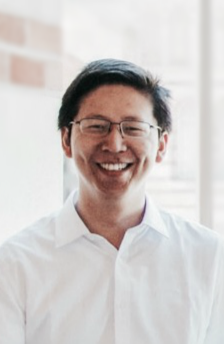|
Assistant Professor of Economics Cheung Kong Graduate School of Business (CKGSB) Research Interests Political Economy, Economic History, Organizational Economics [email protected] 20/F, Tower E2, Oriental Plaza, 1 East Chang An Ave, Beijing, China |
Curriculum Vitae [PDF]
Publications 4. The Shaping of A Gender Norm: Marriage, Labor, and Foot-binding in Historical China (with Lingwei Wu) [Link] [SSRN] UniCredit Foundation - Best Paper Award on Gender Economics 10th International Economic Review, 2023, Vol. 64: pp. 1819-1850. Detrimental gender norms can be traced back to unequal access to social mobility. 3. Competence-Loyalty Tradeoff under Dominant Minority Rule: The Case of Manchu Rule 1650-1911 (with Shuo Chen, L. Colin Xu, and Xun Yan) [Link] [SSRN] Journal of Public Economics, 2023, Vol. 200: 104843 Dominant minority adopted cross-ethnic personnel combos for loyalty & efficiency. 2. Warcraft: Legitimacy Building of Usurpers (with Shuo Chen) [PDF] [Link] Journal of Economic Behavior & Organization, 2021, Vol. 184, pp. 409-431 Usurpers initiated more wars than hereditary rulers for more aggressive legitimization. 1. Strategic Promotion, Reputation, and Responsiveness in Bureaucratic Hierarchies (with Feng Yang) [PDF] [Link] Journal of Theoretical Politics, 2019, 31(3), pp. 286-307 Mid-tier manager deterred staffs' promotion to shift blames when boss is watching. Working papers 10. Guns and Resources: War Extractions and Governance Paradigm Shifts (with Shuo Chen, Yongtao Li, and Yanfei Yin) [SSRN] The regional externality in state-building: The 70-year Dzungar-Qing Wars in Northwestern China accelerated reforms toward centralized rule in Southern regions. 9. Deluge and the Rise of Civilizations: From the Neolithic to First States (with Shuo Chen, and Yanfei Yin) [SSRN] The deluge in 1920 BCE accelerated early civilizational development along the Yellow River, where both productivity and coordination hypothesis contributed to the process. 8. Noble No More: Keju, Institutional Commitment, and Political Purges (with Shuo Chen, and Zhichen Huang) [SSRN] When Keju recruited commoner-born elites in bureaucracy, it erased power checks from nobility, and cultivated an absolutist rule where no one was safe from extralegal purges. 7. The Emperor's Tael: Government Commitment Failure and Tax Revolts in Qing China, 1644-1912 (with Shuo Chen, and Yu Hao) [SSRN] When the central gov. failed to commit to proper compensations, local gov. extended their grabbing hands to society after well-intended fiscal centralization reform. 6. Trade or Raid: Can State-led Trade Policies Pacify Border Conflicts? (with Shuo Chen, and Yantong Fang) [SSRN] When the state re-opened border trades under state-monopolized ministries, the famed “Tea-Horse Trades” substantially reduced regional Sino-nomadic conflicts. 5. Career Incentives and Influence Activities on Social Media: Evidence from Chinese Academia (with Shuo Chen, and Albert Roh) Untenured professors tend to click more "likes" on the dean's social media posts during evaluation periods. Greater effects for faculties with less competitive publication. 4. Elite Persistence, Power Struggles and Coalition Dynamics [SSRN] Why do revolutions that aim to install social equality often quickly reproduce the same type of hierarchies that the revolutionaries sought to destroy? 3. Club-based Promotions: Evidence and Theory (with Shuo Chen and Zhitao Zhu) Previous Title: The Promotion Club To recruit preferred agents without distorting incentives, the principal commits to include top-performers into a "club", then promote from the club based on personal discretion. 2. Godfather Politicians and Organized Violence: The Good, The Bad, And The Bloody (with Shuo Chen and Xuanyi Wang) [SSRN] A corrupt politician may serve as Godfather to arbitrate local mafia disputes peacefully. When the politician is eradicated, the local power vacuum leads to surges of local violence. 1. Starving and Deceiving? How Disasters Reshape Politicians' Incentives to Lie (with Shuo Chen and Xuanyi Wang) [SSRN] The victims of lies are more reluctant to lie: childhood exposures to famines restrain local politician's incentives to manipulate local GDP numbers for political benefits. Work in progress 6. Reason for Treason (with Gary Richardson, Zhihao Xu, and Sicheng Zhao) The pushes and pulls that incentivize military officers to defect to their enemies. 5. Monitoring Dynamics in Fighting Corruption An anti-corruption investigator may deliberately turn a blind eye to early corruption behavior then use the threat of confiscation to enforce future good actions. 4. Investment with News Arrival When launching new products, the best firms sometimes "wait and see": allow others to test the market, and enter the market after the potential is proven. 3. The Clash of Legitimacy (and the Remaking of Organizational Order) (with Shuo Chen) Why do we observe cycling purges in transitional period of organizations? The continued legitimacy fights between charismatic leader and bureaucracy is the key. 2. Peace and War and Peace: Social Order in Costly Struggles How arming strategies shape war and peace in a non-monotonic way, and why David may out-invest Goliath in arms. 1. Law vs. Lynching: A History of Vigilantes (with Shuo Chen and Bo Yang) Lynching sometimes collaborates with law enforcement to realize social "justice", but is always punished by law for social stability. We show how strong state capacity weakens lynching, and why sometimes a lynching state may exist. |
